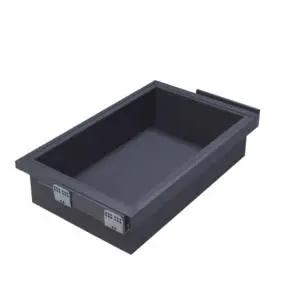Custom Aluminum Lathe Milling CNC Turning Machining Precision Parts
Custom Aluminum Lathe Milling CNC Turning Machining Precision Parts
In the realm of manufacturing, where precision is the cornerstone of quality, custom aluminum parts crafted through lathe milling and CNC turning machining have become indispensable. These processes, leveraging advanced technology and skilled craftsmanship, deliver parts with unparalleled accuracy, making them suitable for a wide range of high-demand industries, from aerospace and automotive to electronics and medical equipment.
The Synergy of Lathe Milling and CNC Turning for Aluminum Parts
Lathe milling and CNC turning are two complementary machining processes that excel in shaping aluminum into precise components.
- CNC Turning: This process involves rotating the aluminum workpiece while a cutting tool removes material to create cylindrical or conical shapes. It is ideal for producing parts with rotational symmetry, such as shafts, bushings, and bolts. CNC turning machines are programmed to follow precise toolpaths, ensuring consistent dimensions and tight tolerances—often as low as ±0.001 mm. This level of accuracy is crucial for parts that need to fit into rotating assemblies or have precise thread patterns.
- Lathe Milling: Milling, on the other hand, uses a rotating cutting tool to remove material from a stationary workpiece, allowing for the creation of flat surfaces, slots, grooves, and complex 3D features. When combined with lathe operations, it enables the production of parts with both rotational and non-rotational elements, such as flanges with keyways or gears with intricate tooth profiles. The integration of CNC technology in both processes ensures that even the most complex designs are executed with repeatable precision.
Aluminum, with its excellent machinability, is a perfect match for these processes. Its relatively low hardness allows cutting tools to glide through the material smoothly, reducing tool wear and enabling faster machining speeds. This not only improves production efficiency but also helps maintain the integrity of the part’s surface finish.
Customization to Meet Exacting Specifications
Every industry and application has unique requirements, and custom aluminum precision parts are designed to meet these specific needs through a range of customizable features:
1. Design Adaptability
Whether it’s a simple cylindrical pin or a complex component with multiple bores, threads, and contours, lathe milling and CNC turning can bring any design to life. Engineers can work with CAD models to translate intricate blueprints into machining programs, ensuring that every detail is replicated accurately. For example, in aerospace applications, where parts must adhere to strict weight and strength ratios, custom aluminum parts can be designed with thin walls and strategic ribbing—features that are easily achievable through precise CNC machining.
2. Material Selection for Performance
Aluminum alloys come in a variety of grades, each with distinct properties, and the choice of alloy depends on the part’s intended use.
- 6061 Aluminum: A popular choice for its balanced strength, weldability, and corrosion resistance, making it suitable for structural components in automotive and industrial machinery.
- 7075 Aluminum: Known for its high strength-to-weight ratio, it is ideal for aerospace parts and high-performance equipment that require exceptional durability.
- 5052 Aluminum: With superior corrosion resistance, it is often used in marine applications or parts exposed to harsh environments.
CNC turning and milling processes adapt seamlessly to these alloys, ensuring that the final part retains the alloy’s inherent properties while meeting dimensional requirements.
3. Tight Tolerances and Surface Finishes
Precision is non-negotiable in custom aluminum parts, and lathe milling and CNC turning deliver on this front. Tolerances as tight as ±0.0005 inches can be achieved, ensuring parts fit together with zero clearance or interference. Additionally, these processes can produce a variety of surface finishes, from smooth polished surfaces (Ra 0.8 μm or better) for aesthetic or low-friction applications to textured finishes for improved grip or adhesion. Surface treatments like anodizing or plating can also be applied post-machining to enhance corrosion resistance or conductivity, with the precision of the machining ensuring uniform coverage.
Applications Across Industries
Custom aluminum lathe milling and CNC turning precision parts find applications in diverse sectors:
- Aerospace: Components such as hydraulic fittings, valve bodies, and sensor mounts rely on the high precision and lightweight properties of aluminum. These parts must withstand extreme temperatures and pressures, making the accuracy of CNC machining critical for safety and performance.
- Electronics: Connectors, heat sinks, and PCB (printed circuit board) mounts benefit from aluminum’s excellent thermal conductivity and machinability. The tight tolerances ensure a secure fit for sensitive electronic components, preventing signal interference or overheating.
- Medical Equipment: Surgical instruments, diagnostic device components, and implantable parts (where biocompatible aluminum alloys are used) require the utmost precision to ensure patient safety and device functionality. CNC machining ensures these parts meet strict regulatory standards.
- Automotive: Fuel injectors, transmission components, and suspension parts leverage aluminum’s lightweight nature to improve fuel efficiency, while the precision of machining ensures reliable operation under dynamic conditions.
Why Choose Custom Aluminum Lathe Milling and CNC Turning Parts
- Uncompromising Precision: The combination of CNC technology and skilled operators ensures that every part meets exact specifications, reducing assembly errors and improving overall product reliability.
- Cost-Efficiency: Aluminum’s machinability and the efficiency of CNC processes reduce production time and material waste, leading to lower costs compared to other manufacturing methods—especially for complex or high-volume orders.
- Scalability: Whether producing a single prototype or thousands of parts, CNC turning and milling offer consistent quality across all quantities, making them suitable for both small-batch and large-scale production.
- Innovation Enablement: The design flexibility of these processes allows engineers to push the boundaries of what’s possible, creating custom parts that solve unique challenges and drive product innovation.
In conclusion, custom aluminum lathe milling and CNC turning machining precision parts are the gold standard for applications where accuracy, performance, and reliability matter most. By combining advanced technology with the inherent benefits of aluminum, these parts deliver exceptional value across industries, ensuring that products function seamlessly and stand the test of time.


